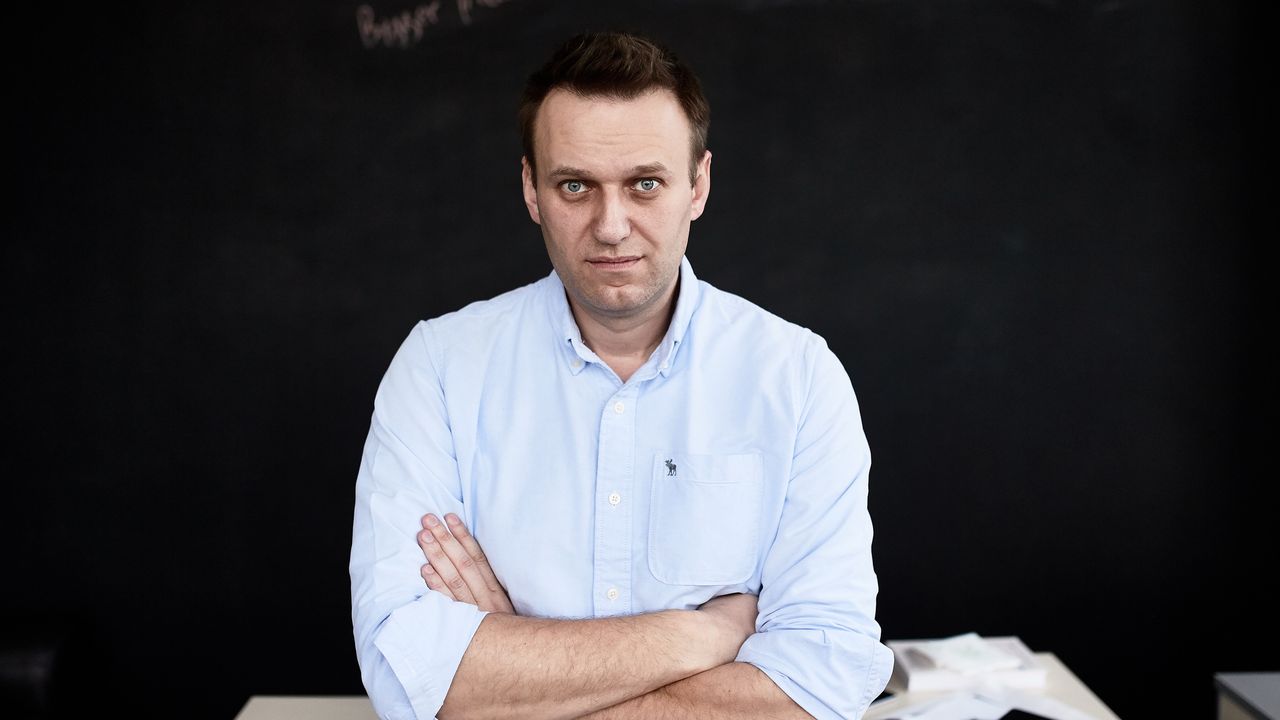
Russian opposition leader Alexey Navalny has been ordered to remain in pre-trial detention for 30 days, following his arrest upon returning to Russia on Sunday for the first time since a failed assassination attempt last year.
Why it matters: The detention of Navalny, an anti-corruption activist and the most prominent domestic critic of Russian President Vladimir Putin, has already set off a chorus of condemnations from leaders in Europe and the U.S.
Driving the news: Navalny, who has been arrested several times on charges he says are politically motivated, is accused of breaking the terms of his parole by staying in Germany while he recovered from an attempted poisoning.
- After his arrest at a Moscow airport, Navalny faced a makeshift hearing at a police station on Monday, which he called a “mockery of justice.”
- Navalny tweeted after he was ordered to remain in custody: “Don’t be afraid, take to the streets.”
The big picture: Navalny has alleged that the Kremlin ordered his poisoning with the nerve agent Novichok.
- An investigation by Bellingcat revealed that an undercover team of Russian spies tailed Navalny on more than 30 trips to and from Moscow starting in 2017 before he was poisoned in August.
- The Kremlin has denied any role in the poisoning. Putin suggested after the Bellingcat report was published in December that Russian intelligence officers “would have probably finished the job” if they were responsible.
What they’re saying: Western nations on Sunday immediately condemned Navalny’s detention, which could further escalate tensions between Russia and its adversaries just as President-elect Joe Biden is set to take office.
- Jake Sullivan, Joe Biden’s incoming National Security adviser, denounced what he called “the Kremlin’s attacks on Mr. Navalny” as “a violation of human rights” and “an affront to the Russian people who want their voices heard.”
- The UN Human Rights office tweeted that it was “deeply troubled” by the arrest, calling for Navalny’s immediate release and for his “due process rights to be respected in line with the rule of law. We reiterate our call for a thorough and impartial investigation into his poisoning.”
- NATO Secretary General Jens Stoltenberg joined the call for Navalny’s release, adding that whoever is “responsible for the attempt to assassinate him, using a prohibited chemical weapon, must be brought to justice. #Russia has to respect its international commitments on human rights and the rule of law.”
- European Council President Charles Michel tweeted: “The detainment of Alexey #Navalny upon arrival in Moscow is unacceptable. I call on Russian authorities to immediately release him.”
- German Foreign Minister Heiko Maas called for Navalny’s release, calling the arrest “completely incomprehensible.” He added: “Russia is bound by its own constitution and by international commitments to the principle of the rule of law and the protection of civil rights. These principles must of course also be applied to Alexei Navalny. He should be released immediately.”
The other side: Russian Foreign Minister Sergey Lavrov said the condemnations coming from around the globe were part of efforts to “to divert attention from the crisis of the Western model of development,” according to AP.

